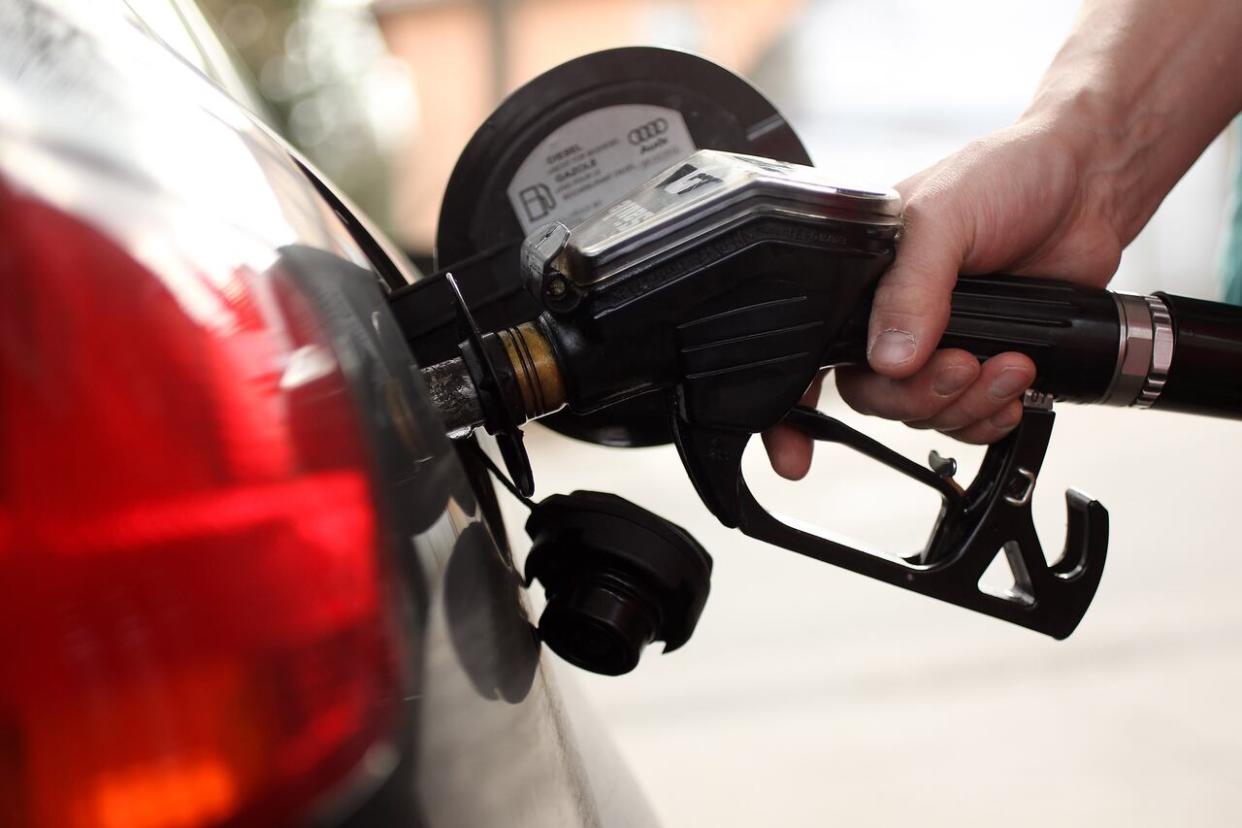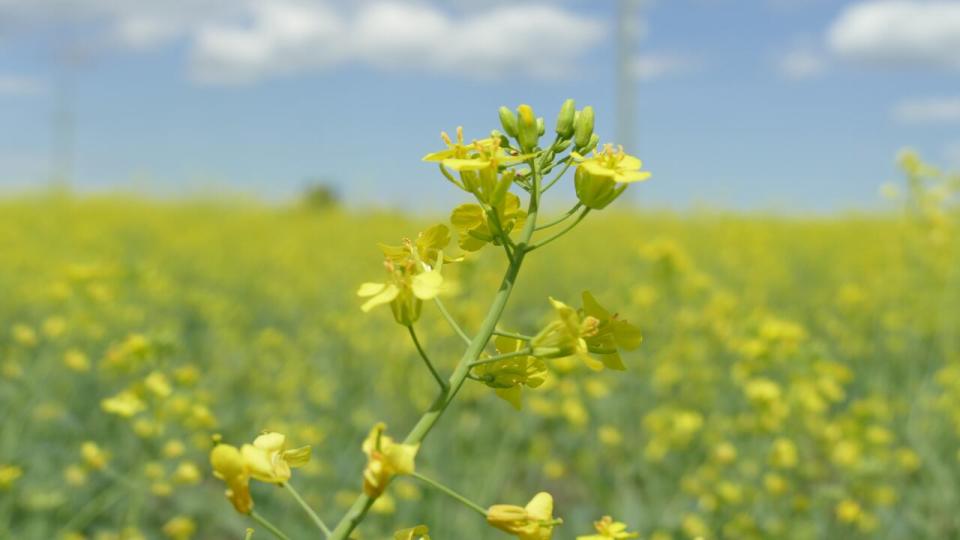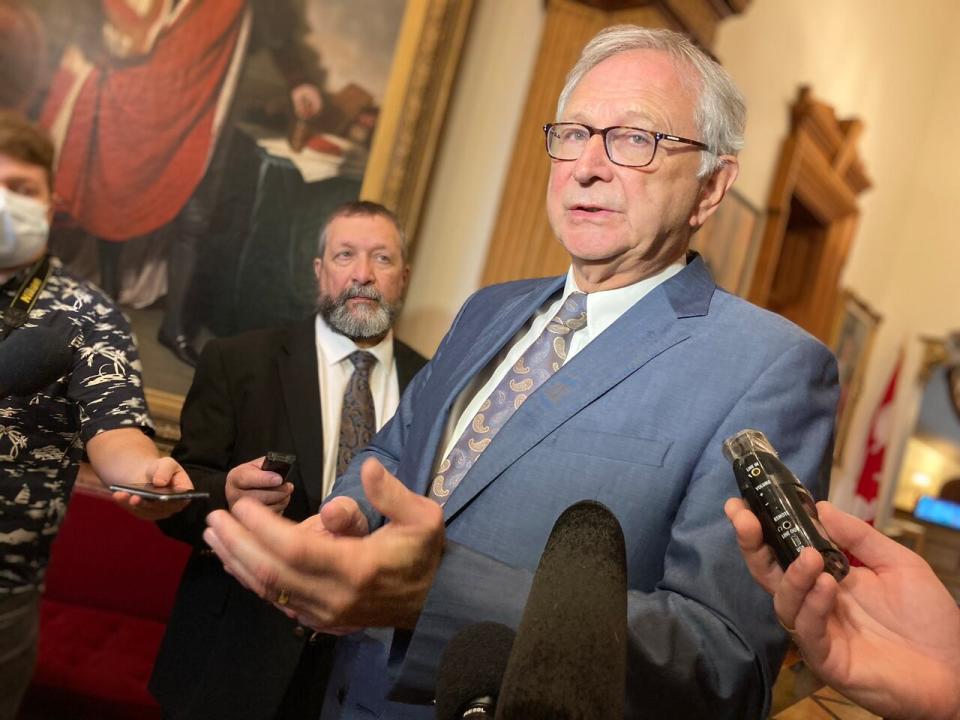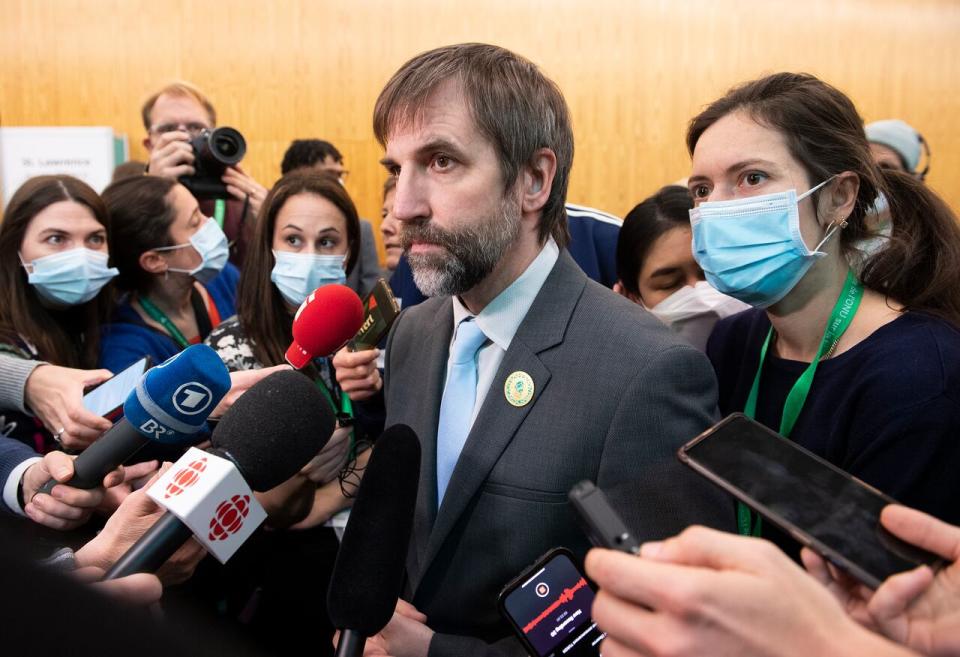Controversial federal clean fuel charges in New Brunswick barely noticed in most provinces

The cost to consumers of new federal government clean fuel regulations has been a central point of attack on Ottawa by the New Brunswick government for months.
But a new report suggests there might have been no effect at all if New Brunswick had higher environmental standards for itself and had adopted biodiesel and ethanol rules on its own like most other provinces.
"It is important to note that some jurisdictions had clean fuel initiatives in effect prior to the introduction of CFR (clean fuel regulation)," says the report which was filed with the New Brunswick Energy and Utilities Board on Friday by the consulting firm Grant Thornton.
The board is preparing to hold a hearing in January to review a formula it created earlier this year to calculate the potential costs of new federal clean fuel rules on oil companies operating in New Brunswick.
Most provinces noticed little effect, report says
In its new report for that review, Grant Thornton said although it might be useful to compare experiences across the country since the new rules were imposed, most provinces noticed little effect because of their own pre-existing requirements that oil companies incorporate plant-based fuels in their product mix.
Canada's six largest provinces each require the blending of renewable fuels with conventional fuels to some degree and were already at or near the minimum requirements of the federal policy when it took effect on July 1.
According to Grant Thornton, "these jurisdictions would have already included compliance costs" in their fuel prices prior to July 1, 2023, because of their own environmental standards and initiatives.

Canada's six largest provinces have their own requirements for plant-based fuels, like those made from canola, to be blended with conventional fuels to lower emissions. Consequently most drivers in those provinces barely noticed when new federal clean fuel rules came into effect July 1. (Riley Laychuk/CBC)
It wrote that "in contrast" the four Atlantic provinces including New Brunswick "did not have specific provincial clean fuel regulations prior to CFR" and experienced the environmental rules and costs as something new.
Oil companies in New Brunswick have sold gasoline blended with ethanol for several years, but that was due to a federal rule that has been replaced by the new regulation.
New Brunswick itself has no green fuel requirements.
Federal clean fuel rules are separate from carbon charges and are aimed at forcing oil refineries and fuel importers to lower the "carbon intensity" of the products they sell and the methods they use to refine them.
The policy sets targets for emissions and establishes financial rewards and penalties for oil companies to reach them.
The regulations do not apply to heating fuels or to petroleum products exported from Canada.

New Brunswick Premier Blaine Higgs has criticized the federal government for imposing clean fuel rules on Canadians that he said are driving up inflation across the country. However, a new report suggests the policy has had little effect in most provinces. (Jacques Poitras/CBC)
Refiners can comply with the new rules in different ways, including putting more ethanol in domestic gasoline, selling biodiesel products or finding ways to reduce their own refining emissions.
Companies that come in below the federal government's emissions intensity ceiling earn credits they can sell on a market being set up for that purpose. Other producers can buy those credits if their fuels fall short.
Possible to earn credits
It's also possible to earn credits through investments in things unrelated to refining, like electric vehicle charging stations.
The policy has created little controversy outside of Atlantic Canada with even the Canadian Fuels Association, which represents oil refiners and retailers, endorsing it back in June on the eve of its introduction
"I want to reassure Canadians that it is a good policy, it is a good regulation, it will deliver significant [emission] reductions," said Bob Larocque, the association's president.
On its website, the fuels association calls the federal policy "an important milestone in Canada's journey to net-zero."
In New Brunswick, however, Premier Blaine Higgs has consistently condemned it as irresponsible. On Canada Day his government bought a rare full-page, front-page newspaper ad to condemn both carbon charges and clean fuel rules.

The New Brunswick government has maintained an online link on its main website criticizing federal clean fuel rules for several months. The site still uses eight cents per litre as its estimated cost of the policy to consumers although actual current amounts are less than half that. (GNB)
"It is the federal government that has imposed these regulations on Canadians, and because of this choice, it is costing us more for almost everything we buy and will negatively impact rising inflation," Higgs said in a statement.
Through legislation, the New Brunswick government required the energy and utilities board to quantify the potential costs of the federal policy so those could be passed through to consumers if and when oil companies began charging for them.
The formula adopted by the board assumes oil companies will eventually comply with lower emission requirements mostly by importing soybean- or canola-based biomass-diesel to mix with conventional diesel

Steven Guilbeault, minister of environment and climate change, has been critical of the New Brunswick government for allowing consumers to be charged for clean fuel regulations that are aimed at industry. (Graham Hughes/The Canadian Press)
It was originally feared that could add up to eight cents per litre to the cost of all fuels sold in New Brunswick, including gasoline, but a steep drop in biodiesel prices and credits in the U.S. this fall has cut the cost calculated by the formula to half of that amount.
On Friday, the board reset maximum prices in New Brunswick that included a 3.87-cent charge for gasoline and 4.31 cents for diesel related to the clean fuel regulation
In September, officials with New Brunswick's Department of Natural Resources and Energy Development said although consumers are being charged amounts, they are not sure if that money is really going to pay for clean fuel costs incurred by refiners.
"Where it shows up between the retailer and the wholesaler, or the wholesaler and the refinery, I don't know," said Tom McFarlane, the department's deputy minister
The full board hearing to review the formula behind those charges is scheduled for Jan. 29.


